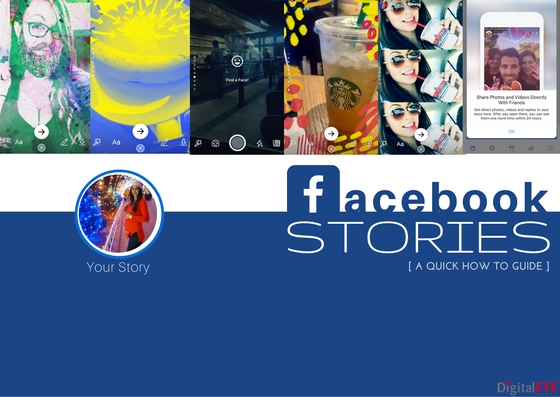How to Use Facebook Author Meta Tags to Connect Readers with Your Brand
In recent months, Facebook has implemented a number of new features to boost user engagement with businesses and brands. In early 2015, Facebook’s new “Call to Action” feature debuted, boosting user engagement through simple yet persuasive new buttons. This month, Facebook unveiled another groundbreaking new feature known as Author Tags. This exciting new tool is guaranteed to further boost user engagement with brands as well as their content creators.
What Exactly are Author Meta Tags?
Author Tags are a part of Facebook’s web customization tools. Brands that already customize their professional content on Facebook may be familiar with the process of modifying content through Open Graph, Facebook’s web design protocol. It is important to customize your content’s meta tags, particularly when sharing outside web content on your brand’s Facebook page. Customized meta tags allow for posts to be displayed with optimized titles, descriptions, images, and more.
Much like these other meta tags, Author Tags are an Open Graph meta tag feature that can be used to customize content shared on Facebook. When a business chooses to share content, such as a news article, on its Facebook page, the brand will now have the option to customize the label stating the author of the content. Without Author Tags, the author’s name on a news article would simply appear at the bottom of the shared link. With the Author Tag, however, the author’s name can be linked back to the personal profile or professional page of the author.
When a Facebook user clicks on a link with an Author Tag, another box will appear below the article byline, offering the user the opportunity to “like” or “follow” the author of the content.
Why Use Facebook’s Author Tags?
Facebook’s new Author Tag is a great feature for your business or brand. If you are a news or content producer, you may benefit significantly from using the Author Tag. With the new Author Tag functionalities, readers can more easily follow their favorite authors and content producers, keeping readers constantly engaged with these brands. If you are a content creator, the tool can help you boost user recognition of your personal brand. If you are an author or a journalist, you can better “build a name for yourself” through this innovative feature.
You may discover that the Author Tag helps generate an audience that’s more passionate and engaged with your brand. Richer connections with your brand and its content creators will open the doors for greater follower engagement on Facebook and beyond. Simply put, the Author Tag is an incredible tool for engaging your fans and deepening their connection with your brand.
How to Set Up Facebook Author Tags
To begin using Facebook Author Tags, you will have to add a section of custom code to your Facebook page. Though this might sound daunting at first, this is actually very easy to do. You only need to add a single line of code to the header tag in order to set up the Author Tag feature. Simply use the field “article:author” to modify the Author Tag for your page. For more details regarding the customization of the Author Tag in Open Graph, check out the Facebook Developers “Best Sharing Practices” page.
If you are a content creator looking to boost your personal following through the use of the Author Tag, be sure to double-check your Facebook settings. If you choose to link the Author Tag to your personal Facebook page, you will need to turn the “follow” option on for your page. If you don’t, fans will only be able to follow your content by sending you a friend request. To appear even more professional to your fans and followers, set up a proper Facebook page for your brand and personal content. Users tend to follow professional pages more often than personal profiles.
Once you’ve enabled Author Tags, Facebook users will be shown a link to your page or profile after engaging with your content. After a user has clicked through to view your content on an outside website, an additional line of text will appear under the Facebook entry they clicked. The prompt will vary, depending on which type of profile you have linked to the Author Tag. If you have connected the Author Tag with your personal Facebook profile, users will be offered the opportunity to “follow” the content you post publicly on your profile. If you chose to link your Author Tag to a professional Facebook page, users will be presented with a “like” button instead. By selecting “like” or “follow,” users can continue to receive updates on your future endeavors and content creation.
Facebook Author Tags: The New Google Authorship
Tech-savvy content creators may notice that the Facebook Author Tag is similar to the now-defunct Google Authorship program. The Author Tag, however, is likely to succeed where Google Authorship failed. Facebook’s Author Tag coding is simpler and easier to implement than the coding used by the Google Authorship program. Most significantly, however, is the difference in user engagement between Facebook and Google+. Facebook is home to over 1.4 billion active users, nearly 10 times the number of active users found on Google+. Users are also 2 to 3 times more likely to share brand-related content on Facebook than they are on Google+. The Google Authorship program simply didn’t reach a broad enough audience, and many content creators failed to create Authorship profiles.
The Facebook Author Tag, however, is poised for success. Authors from popular content creation sites such as Buzzfeed, Elite Daily, the Wall Street Journal, and the Washington Post have already begun using the new Author Tag feature. In the months to come, Author Tags will likely be adopted by brands, businesses, and content creators from around the globe.
Whether you’re a blogger or a business owner looking to increase user engagement in social media, the Facebook Author Tag feature is certainly worth implementing. Grab that code and get started with Author Tags today!











